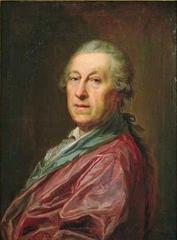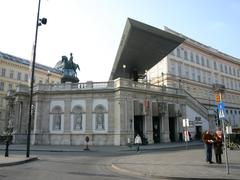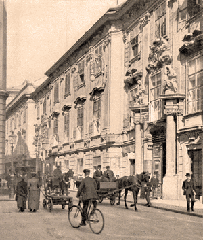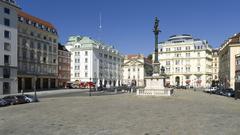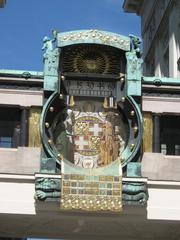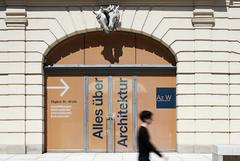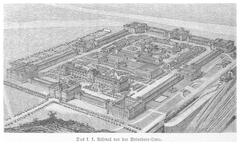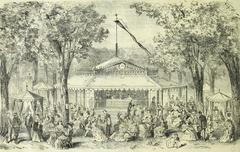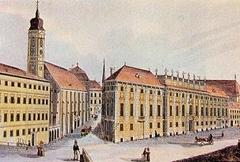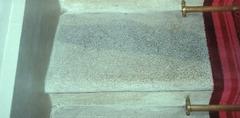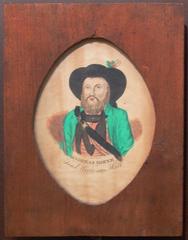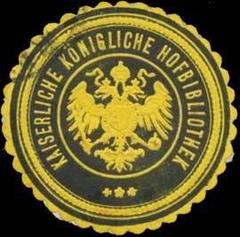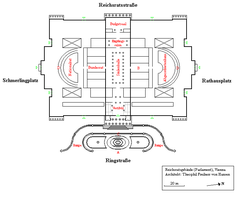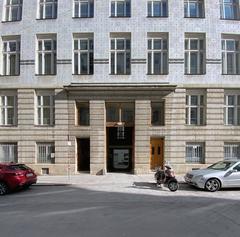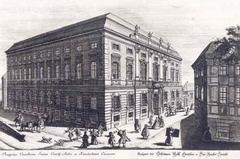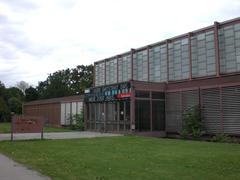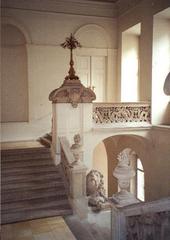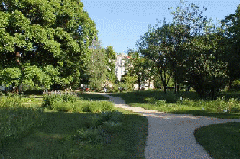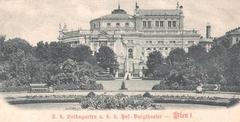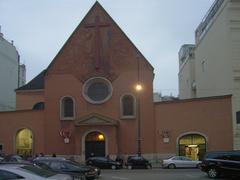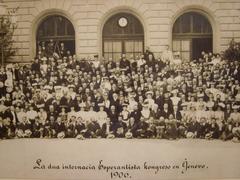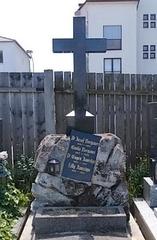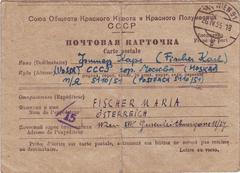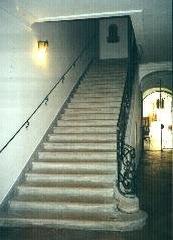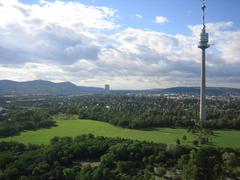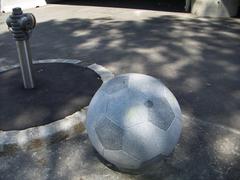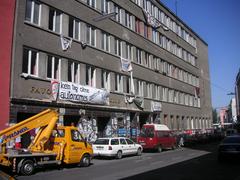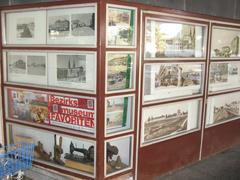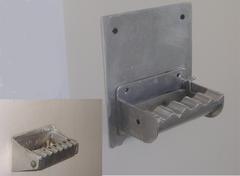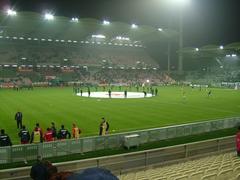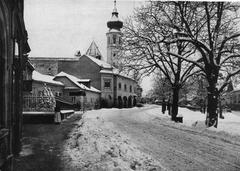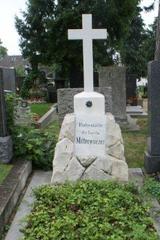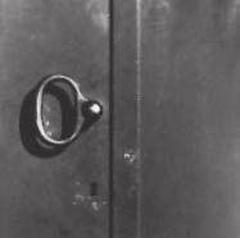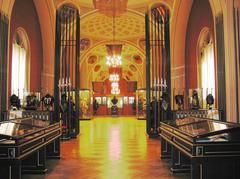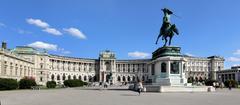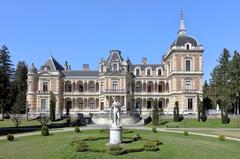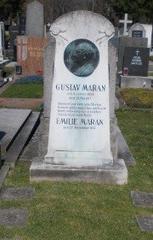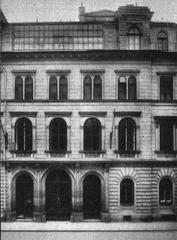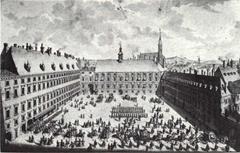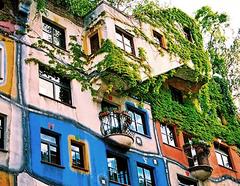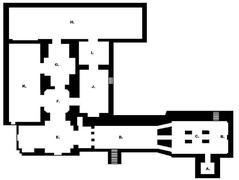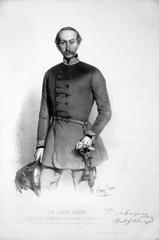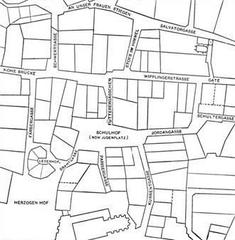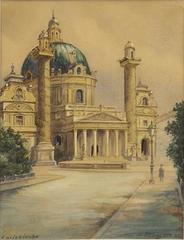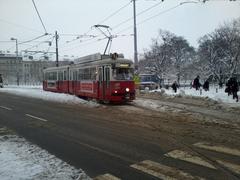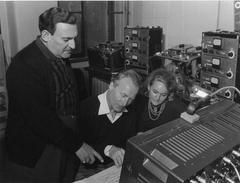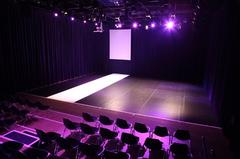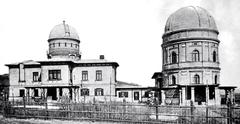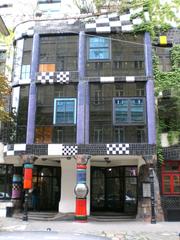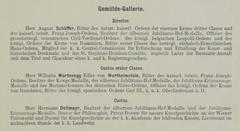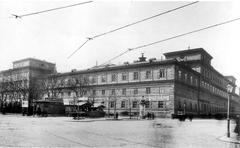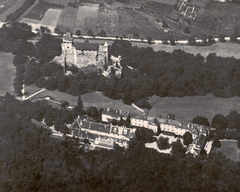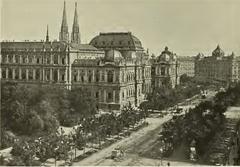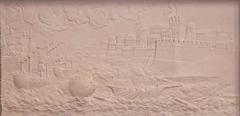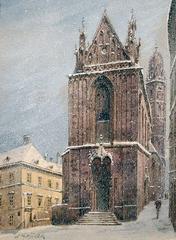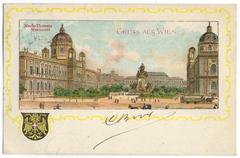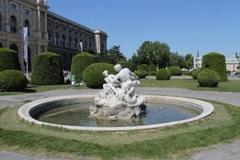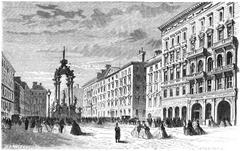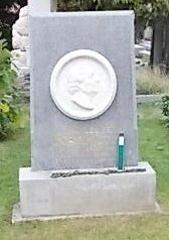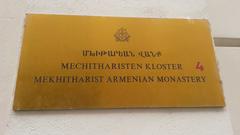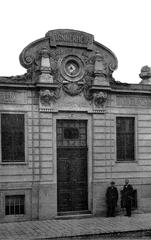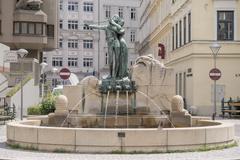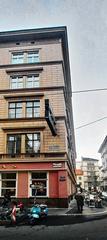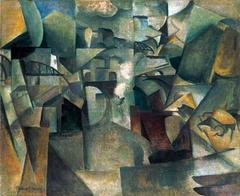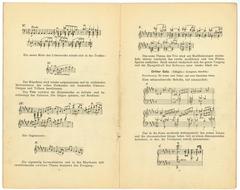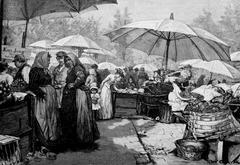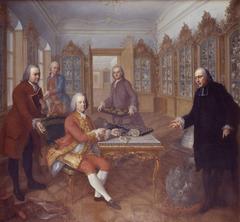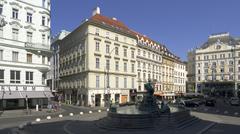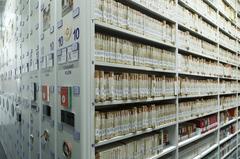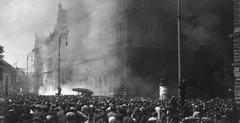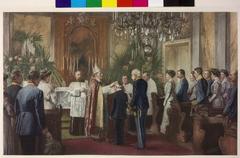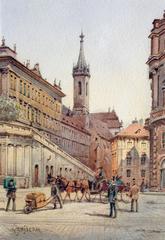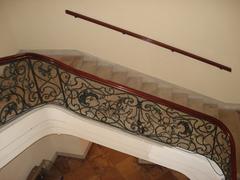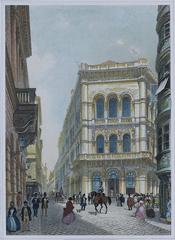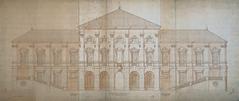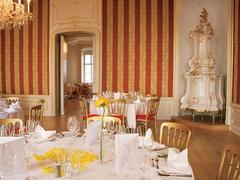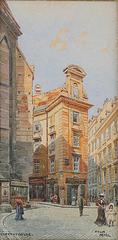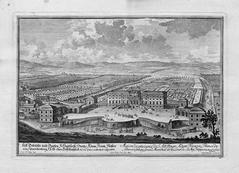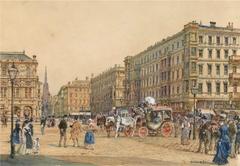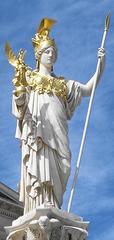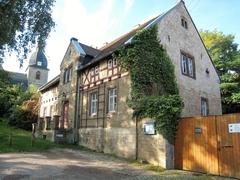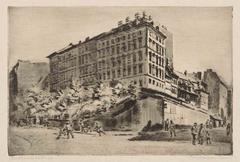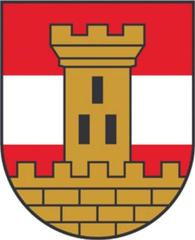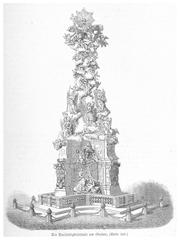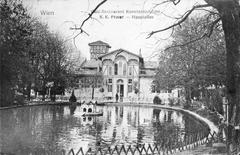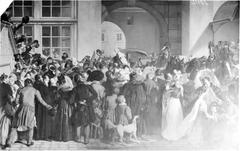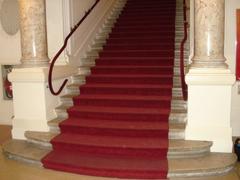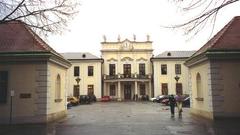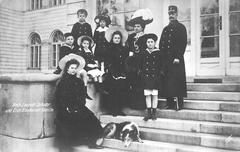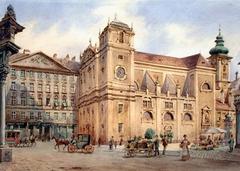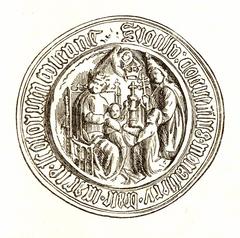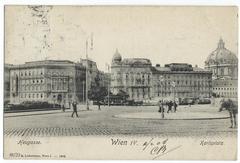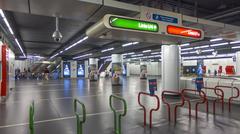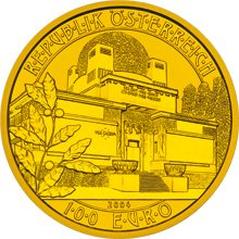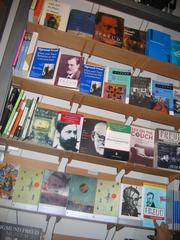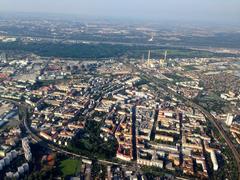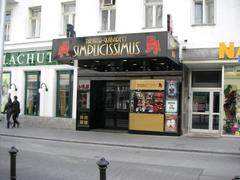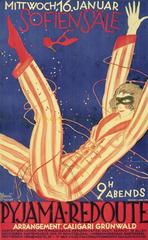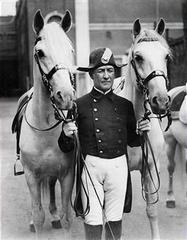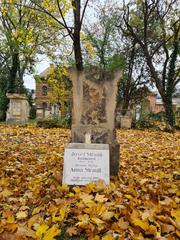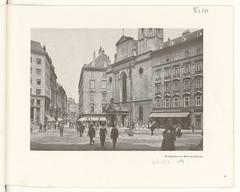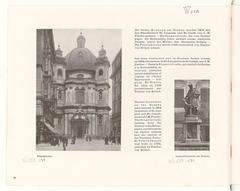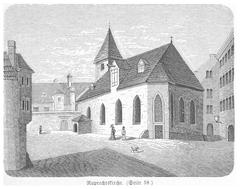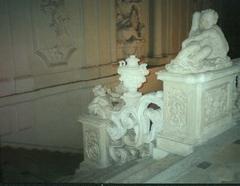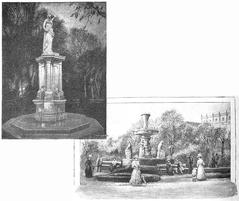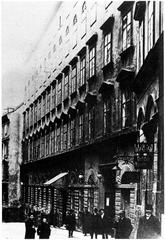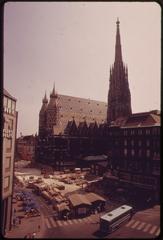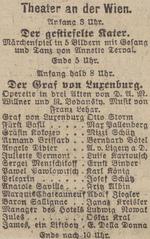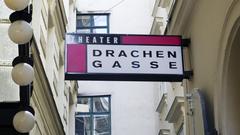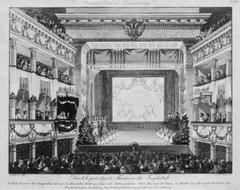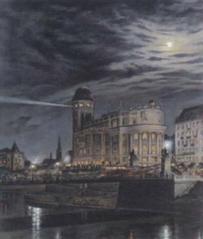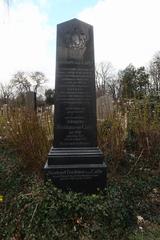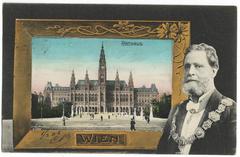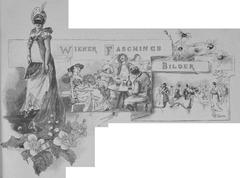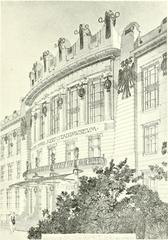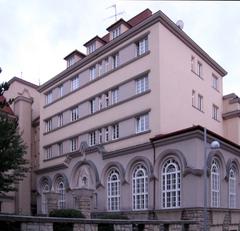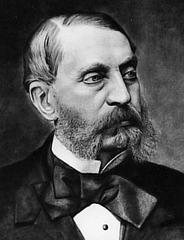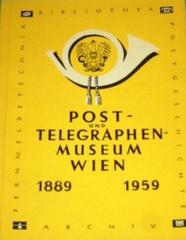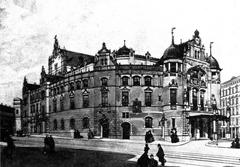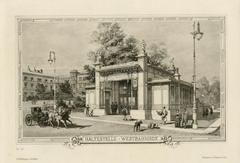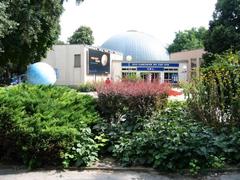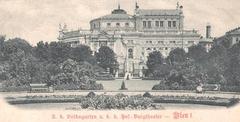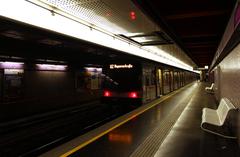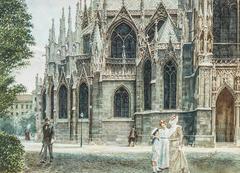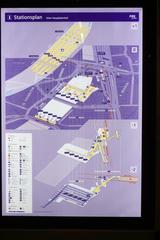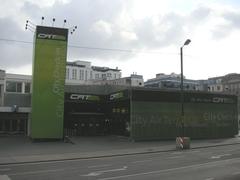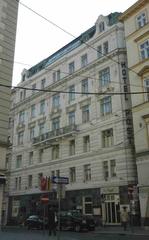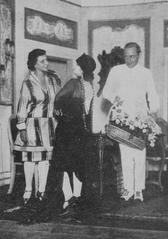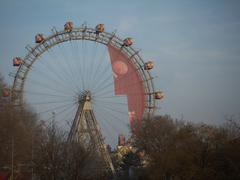Schubert Theater Vienna: Visiting Hours, Tickets, and Historical Significance
Date: 04/07/2025
Introduction
Nestled within Vienna’s vibrant 9th district, the Schubert Theater stands as a unique hub for contemporary puppet and figure theater, offering visitors an intimate alternative to the city’s grand opera houses and classical music venues. Named in honor of Franz Schubert, the renowned Viennese composer, the theater reflects the city’s rich musical heritage while continually embracing innovative and experimental performance forms. In this comprehensive guide, you’ll find essential information about the theater’s history, architectural evolution, practical visitor details, cultural significance, and tips for making the most of your visit (The Vienna Blog).
Table of Contents
- History and Origins
- Architectural Evolution
- Cultural Significance and Artistic Profile
- Visiting Information
- Location and Getting There
- Visitor Experience
- Facilities and Amenities
- Nearby Attractions
- Special Events and Festivals
- FAQ
- Tourist Recommendations
- Visuals and Media
- Conclusion and Call to Action
- References
History and Origins
The Schubert Theater is a cherished institution in Vienna, conceived during the city’s 19th-century cultural renaissance but truly coming into its own in the early 20th century. Unlike Vienna’s more traditional venues, it was founded to champion both classical and new, avant-garde performances—establishing itself as a space where traditional puppet theater meets innovative artistry (The Vienna Blog; Kultur.net).
Its dedication to Franz Schubert connects the theater not only to Vienna’s musical legacy but also to the spirit of artistic experimentation and cross-disciplinary performance.
Architectural Evolution
The theater’s architecture harmoniously blends Biedermeier comfort with Secessionist elegance, reflecting Vienna’s transition from ornate Baroque to modernist design. The building’s façade and interior prioritize intimacy and functionality, making it a welcoming space for both performers and audiences. Post-World War II renovations preserved these historical elements while upgrading the facilities to meet contemporary standards (ArchDaily).
Cultural Significance and Artistic Profile
Distinctive Artistic Focus
The Schubert Theater has carved a niche in Vienna’s performing arts by specializing in puppet and figure theater for adult audiences. Its repertoire ranges from modern reinterpretations of classical works to morbidly humorous and visually poetic productions. Notable shows such as “F. Zawrel – erbbiologisch und sozial minderwertig” have earned critical acclaim, including winning the Nestroy Prize (Kultur.net).
Festivals and International Collaboration
The annual International Figure Theater Festival attracts artists and audiences from across Europe and beyond, reinforcing the theater’s role as a center for contemporary puppetry and interdisciplinary art. Events like “puppets die better” and “Future Lab” further highlight Vienna’s vibrant and innovative cultural scene (Schubert Theater International Festivals).
Visiting Information
Visiting Hours
- Regular Hours: Tuesday to Sunday, typically 10:00 AM – 6:00 PM
- Performance Times: Most evening shows begin between 7:00 PM and 8:00 PM; matinees are occasionally scheduled on weekends or during festivals
- Box Office: Open from 12:00 PM to 7:00 PM on performance days
Hours may vary during festivals or special events; always consult the official website for the latest schedule.
Tickets and Booking
- Prices: Generally range from €10 to €28, depending on the performance and seating
- Discounts: Available for students, seniors, and groups
- Booking: Recommended in advance, especially for popular shows or during festival periods
- How to Buy: Online through the official website, at the box office, or via authorized vendors
Guided Tours and Workshops
- Tours: Offered on select days, providing insight into the theater’s history, architecture, and backstage areas. Advance reservation is recommended.
- Workshops: Regularly available for children, students, and adults, especially during festivals. These hands-on programs introduce the techniques and artistry of puppetry (Schubert Theater International Festivals).
Accessibility
- The theater is fully wheelchair accessible, with step-free access, elevators, and designated seating.
- Staff are available to assist visitors with special needs.
- Many performances are visually driven or include English subtitles, ensuring accessibility for non-German speakers (Schubert Theater Wien).
Location and Getting There
- Address: Währingerstraße 46, 1090 Vienna (Alsergrund)
- Public Transport:
- U-Bahn: U6 line, Währinger Straße-Volksoper station (short walk)
- Tram: Lines 40, 41, and 42 (nearby stops)
- Bus: Several lines serve the area
- Parking: Limited street parking; public transportation is strongly recommended (Live the World; Fascinating Vienna).
Visitor Experience
- Atmosphere: The auditorium holds about 100 seats, providing an intimate and elegant experience with plush décor and excellent sightlines.
- Language: Performances are mainly in German, but many are accessible to non-German speakers through visual storytelling or subtitles.
- Arrival: Arrive 15–20 minutes before showtime for ticket collection and seating. Latecomers may only be admitted during intermissions.
Facilities and Amenities
- Restrooms: Accessible and modern facilities available
- Foyer: Small area for refreshments before the show or during intermission
- Dining: No on-site restaurant, but many nearby cafes, wine bars, and eateries in Alsergrund (Live the World)
Nearby Attractions
- Sigmund Freud Museum: Freud’s former home and office
- Augarten Park: Historic park with a porcelain museum and concert hall
- Schubert’s Birthplace: Preserves the composer’s childhood home
- Vienna State Opera, MuseumsQuartier, and Albertina Museum: All within easy reach, perfect for combining with your theater visit (Visiting Vienna)
Special Events and Festivals
The Schubert Theater is renowned for its annual International Figure Theater Festival and unique events like “puppets die better.” These festivals feature performances, workshops, installations, and international collaborations, making the theater a lively focal point in Vienna’s cultural calendar (Schubert Theater International Festivals).
FAQ
Q: What are the Schubert Theater visiting hours?
A: Typically Tuesday to Sunday, 10:00 AM – 6:00 PM, with evening performances between 7:00 and 8:00 PM. Confirm the schedule on the official website.
Q: How do I buy tickets?
A: Tickets can be purchased online, at the box office, or via authorized vendors. Early booking is advised for popular shows and festivals.
Q: Is the theater wheelchair accessible?
A: Yes; the venue offers step-free access, elevators, and designated seating.
Q: Are performances suitable for non-German speakers?
A: Many productions are visually based or include English subtitles.
Q: Are guided tours or workshops available?
A: Yes, especially during festivals and by advance booking.
Tourist Recommendations
- Book tickets early—especially for popular or festival performances.
- Check the language of your chosen show for accessibility.
- Combine your visit with nearby historical and cultural sites.
- Use public transport for convenience.
- Arrive early to enjoy the theater’s ambiance and ensure timely seating.
- Explore local dining in Alsergrund before or after your visit.
Visuals and Media
Explore photos of the theater’s interior and performances on the official website, and consider using virtual tours or interactive maps to plan your visit.
Conclusion and Call to Action
The Schubert Theater Vienna is a must-see for lovers of innovative performing arts and anyone seeking to experience the city’s creative spirit beyond its classical venues. With its rich history, accessible location, diverse programming, and welcoming atmosphere, the theater offers an unforgettable cultural highlight. Plan your visit, book your tickets via the official website, and immerse yourself in Vienna’s vibrant artistic tapestry. For more travel tips and real-time updates, download the Audiala app and subscribe to our cultural guides.
